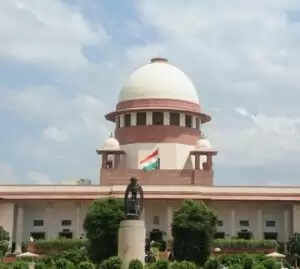Supreme Court Questions Allahabad High Court's Controversial Remarks on Rape Case
Supreme Court's Concerns Over High Court's Comments

New Delhi: On Tuesday, the Supreme Court expressed its disapproval of recent comments made by the Allahabad High Court in a rape case, where it suggested that the complainant had 'invited trouble' by visiting the accused's home while intoxicated.
This criticism arose during the Supreme Court's review of a suo motu case concerning a separate ruling from the Allahabad High Court on March 17, which stated that actions such as grabbing a woman's breasts or pulling her clothing did not constitute an attempt to rape.
The Supreme Court bench, comprising Justices B R Gavai and Augustine George Masih, noted that while granting bail is acceptable, making such remarks about the complainant's actions is inappropriate.
Solicitor General Tushar Mehta emphasized the importance of considering how the general public interprets such statements.
The Supreme Court has postponed the hearing in this suo motu case for four weeks.
On March 26, the Supreme Court had stayed the Allahabad High Court's March 17 ruling regarding the attempt to rape, indicating that it could not be referenced in any ongoing judicial proceedings involving the accused.
The apex court criticized some of the high court's comments as reflecting a lack of sensitivity and an inhumane perspective.
This issue was brought to the attention of Chief Justice of India Sanjiv Khanna, prompting the Supreme Court to take suo motu cognizance.
The Allahabad High Court's March 17 ruling determined that the charges of attempted rape were not substantiated against the accused, who could only be summoned for lesser charges related to assault or criminal force against a woman.
This ruling was made in response to a petition from the accused challenging a special judge's order in Kasganj, which had summoned them under section 376 (rape) of the IPC, among other charges.
In a separate case, the high court granted bail to another accused, stating that both the victim and the applicant were adults, and the victim, being an M.A. student, was capable of understanding the implications of her actions as described in her FIR.
The court concluded that even if the victim's allegations were accepted as true, it could be argued that she had also played a role in inviting trouble.
